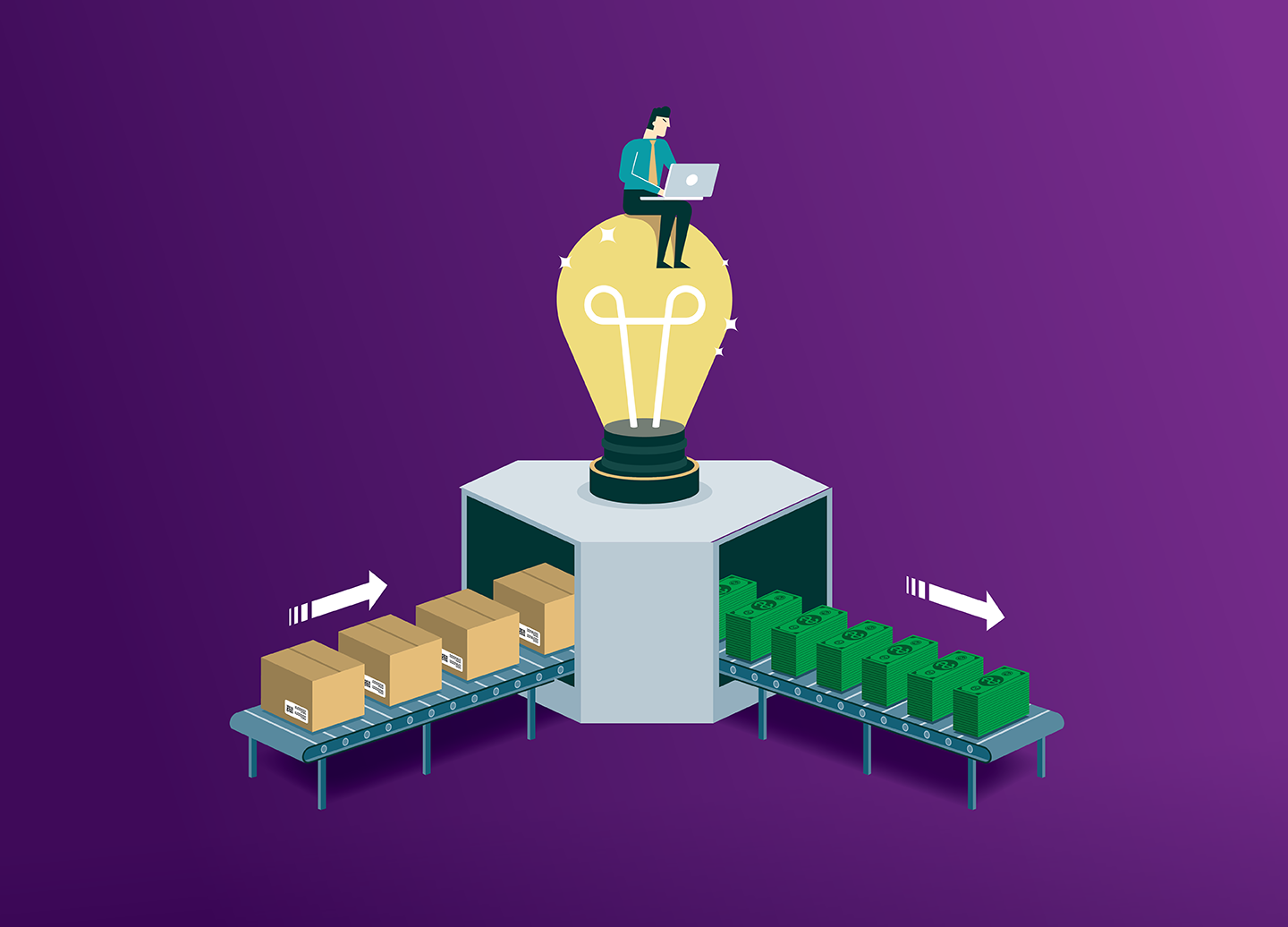Discover how to find retail success with a well-designed Enterprise Software Stack
Today’s retail landscape is a high-speed chase with retailers facing intense competition and customer expectations at an all-time high. Consumers demand fast, affordable delivery options across multiple channels, from in-store purchases with online fulfillment to seamless online ordering with same-day or next-day delivery. The pressure is on for retailers to deliver a frictionless experience that not only meets these demands but also surpasses the competition.
But how do you achieve this winning formula? How do you streamline your operations, optimize shipping costs, and ultimately deliver a superior customer experience?
In this competitive environment, a well-designed Enterprise Software Stack (ESS) in your supply chain can be your framework for success. An ESS isn’t a one-size-fits-all solution, but a customizable foundation that includes various software solutions to meet your specific needs. This allows you to create a holistic approach to shipping, tailored to your unique business model and customer demands.
The Core Components of a Winning Enterprise Software Stack
While the specific software components of your ESS will vary, some core functionalities are essential for success:
- Enterprise Resource Planning (ERP): Provides a central platform for managing your entire business, including inventory, financials, and production. This ensures data consistency and real-time insights across your operations, optimizing order fulfillment and resource allocation.
- Warehouse Management System (WMS): Optimizes inventory management for faster picking and packing, reducing fulfillment times.
- Order Management System (OMS): Automates order processing and fulfillment workflows, ensuring accuracy and efficiency.
- Multi-Carrier Shipping Software (MCSS): Compares rates and services from different carriers, allowing you to find the most cost-effective option for each shipment.
The Benefits of an Enterprise Software Stack for Retailers
By integrating these core functionalities, your ESS establishes a centralized hub for managing your entire shipping operation. This streamlined approach empowers you to achieve a multitude of benefits:
- Reduced Shipping Costs: Negotiate better rates with carriers through consolidated volume and leverage automated rate shopping. An ESS allows you to leverage your overall shipping volume to negotiate better rates with carriers. Additionally, MCSS enables you to choose the most cost-effective option for each shipment, considering factors like weight, destination, and desired delivery speed.
- Improved Efficiency: Eliminate manual processes and automate workflows, leading to faster order fulfillment and reduced errors. An ESS eliminates the need for manual data entry and repetitive tasks, streamlining your fulfillment process. This translates to faster order processing times, reduced errors, and improved overall efficiency.
- Enhanced Inventory Management: Gain real-time visibility into stock levels across your entire network. With real-time inventory data from your ERP and WMS integrated within your ESS, you can gain a clear picture of your stock levels across all locations. This allows for better inventory planning, preventing stockouts and overstocking, and ultimately optimizing your inventory management strategy.
- Elevated Customer Experience: Offer multiple shipping options, clear communication, and accurate tracking information, surpassing customer expectations. An ESS empowers you to offer a wider range of fulfillment and delivery options to meet diverse customer needs. Additionally, real-time order tracking information keeps customers informed and reduces delivery anxieties, leading to higher customer satisfaction and loyalty.
Winning Scenarios with a Unified ESS
Let’s look closer at these real-world examples of how an ESS can streamline your retail operations and elevate your customer experience.
Scenario 1: Same-Day Delivery Hero
- A customer places an order online with same-day delivery.
- ERP: The order automatically triggers a check within your ERP system to confirm product availability and identify the nearest fulfillment center with sufficient stock.
- OMS: The OMS determines the best location for order fulfillment.
- WMS: The WMS directs staff to the exact location of the product within the identified fulfillment center, minimizing picking time.
- MCSS: The MCSS analyzes real-time carrier data and selects the most cost-effective carrier with the fastest delivery option to meet the customer’s same-day request.
- The Result: The customer receives real-time tracking updates and can expect their order on their doorstep within hours, exceeding their delivery expectations and fostering loyalty.


Scenario 2: Dangerous Goods Dilemma Destroyer
- A customer places an online order for a complex product – a bottle of perfume containing flammable ingredients.
- ERP: Holds the material master data including SKU specific detail such as Product Description, Hazmat Class, Quality, Quantity Unit of Measure.
- OMS: The OMS automatically initiates a compliance check, via the MCSS, ensuring the order adheres to all regulations for shipping hazardous materials. If discrepancies arise, the system can flag the order for manual review.
- WMS: The WMS identifies the product’s special storage requirements and location within the warehouse.
- MCSS: The MCSS considers the specific requirements for shipping hazardous materials (e.g., special packaging, carrier limitations, overpack requirements) and selects the most compliant and cost-effective carrier for the flammable perfume.
- The Result: With the power of your ESS, you can ensure safe and compliant shipping of complex products like flammable liquids. This protects your business from potential fines and fosters customer trust by prioritizing safe delivery.
Scenario 3: Multi-Channel Master
- A customer places an in-store order for online delivery.
- Point-of-sale: Seamlessly integrates with the WMS and OMS, capturing order details instantly and updating inventory levels.
- OMS: The OMS efficiently routes the order to your fulfillment center for processing, ensuring the correct product is picked and packaged.
- WMS: Inventory for the online order is automatically deducted from the warehouse stock levels within the WMS.
- MCSS: The MCSS selects the most cost-effective carrier based on the chosen delivery option and destination.
- The Result: The customer receives timely updates on their order status and enjoys a seamless omnichannel experience, regardless of whether they purchase online or in-store.
This is the power of an ESS in action.

Why Choose ProShip for Your Multi-Carrier Shipping Software within Your Unified ESS?
Having explored the power of a unified Enterprise Software Stack (ESS) and the efficiency it brings to your e-commerce fulfillment, selecting the right multi-carrier shipping software (MCSS) is instrumental. ProShip stands out as the ideal solution to integrate seamlessly within your ESS, empowering you to take your shipping operations to the next level.
Here’s why ProShip is the perfect fit for your winning ESS:
- Unparalleled Carrier Connectivity: ProShip boasts robust connections with a vast network of carriers, both domestic and international. This extensive network ensures you can leverage the most competitive rates and service options for every shipment, regardless of destination or complexity.
- Compliance Ensured: Shipping regulations, especially for hazardous materials, can be intricate. ProShip’s built-in compliance features help you navigate these complexities with ease. The shipping software automatically identifies potential compliance issues and guides you through the necessary steps to ensure safe and compliant shipping, saving you time and potential penalties.
- Automated Workflows and Efficiency: ProShip integrates effortlessly with your existing ERP, WMS, and OMS, creating a seamless flow of data. This eliminates the need for manual data entry, reduces errors, and streamlines your entire shipping process.
- Dynamic Cost Optimization: ProShip’s front-of-line and end-of-line rate shopping functionality goes beyond simply comparing rates. Advanced Date Shopping leverages sophisticated algorithms that consider factors like label creation time, customer choice, trailer pull time, contracted pick-up dates, transit dates, delivery dates and more to dynamically select the most cost-effective carrier for each shipment that meets the estimated delivery date. This translates to significant savings on your overall shipping costs.
Ready to Take Control of Your Retail Shipping Strategy?
Download our free white paper, “Unlocking Agility: How an Integrated Enterprise Software Stack Optimizes a Robust Enterprise Shipping Strategy,” to dive deeper into the benefits of an ESS and how it can transform your retail operations. It will equip you with the knowledge and insights to navigate the fast-paced world of e-commerce and leave your competitors in the dust.
Ready to Take Control of Your Retail Shipping Strategy? Contact our expert team to set up a discovery call and learn more about how ProShip can help you find retail success with our leading shipping solutions.


 Back to Blog
Back to Blog







